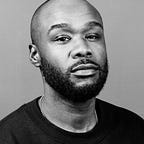How Eminem Conquered Black Music (and White Privilege) With ‘The Marshall Mathers LP’
Looking back on the racial politics of a certified hip-hop classic, 20 years later
Update 6/7/22: Level has a new home. You can read this article and other new articles by visiting LEVELMAN.com.
In 1990, the Bomb Squad represented the crème de la crème of hip-hop sonics. The almighty production team behind Public Enemy crafted “Fight the Power,” the lead single for Spike Lee’s Oscar-nominated film Do the Right Thing, and provided the pulse for Ice Cube’s classic debut album, Amerikkka’s Most Wanted. The five-man unit was Teflon — until they put together a White rap group with one of the worst names a White group could have: Young Black Teenagers. “Black, to me, is a cultural thing,” said emcee Kamron, who appears in House Party 2 unironically sporting dreadlocks. “A state of mind, a state of awareness.” The blowback was palpable; hip-hop had tolerated White rappers like 3rd Bass, but YBT’s gimmick was a bridge too far.
A decade later, the culture was fully grown. And where the Bomb Squad had slipped, Dr. Dre had soared — not just as a producer with a juggernaut label and two classics of his own, but by scoring the greatest album ever authored by a Caucasian rapper. In 2000, respect still eluded…
